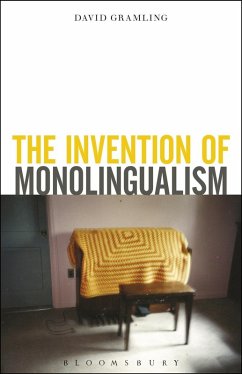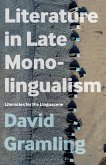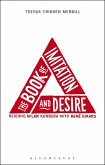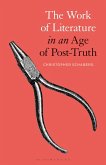Winner of the 2018 Book Award awarded by the American Association for Applied Linguistics
The Invention of Monolingualism harnesses literary studies, applied linguisitics, translation studies, and cultural studies to offer a groundbreaking investigation of monolingualism. After briefly describing what "monolingual" means in scholarship and public discourse, and the pejorative effects this common use may have on non-elite and cosmopolitan populations alike, David Gramling sets out to discover a new conception of monolingualism. Along the way, he explores how writers-Turkish, Latin-American, German, and English-language-have in recent decades confronted monolingualism in their texts, and how they have critiqued the World Literature industry's increasing hunger for "translatable" novels.
The Invention of Monolingualism harnesses literary studies, applied linguisitics, translation studies, and cultural studies to offer a groundbreaking investigation of monolingualism. After briefly describing what "monolingual" means in scholarship and public discourse, and the pejorative effects this common use may have on non-elite and cosmopolitan populations alike, David Gramling sets out to discover a new conception of monolingualism. Along the way, he explores how writers-Turkish, Latin-American, German, and English-language-have in recent decades confronted monolingualism in their texts, and how they have critiqued the World Literature industry's increasing hunger for "translatable" novels.









